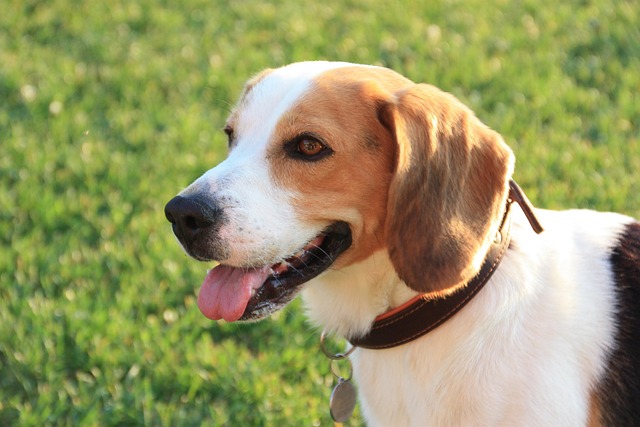
When will Samoyed have his teeth changed
When you look down at the Samoyed by your feet, it rubs your palm with its wet nose, revealing pink gums and tiny teeth.
When you crouch down to interact affectionately with your beloved dog, your fingertips touch its once-wet nose, only to find it rough, dry, and even peeling. In that moment, worry and heartache surge up instantly. A dog's nose is like a "radar" for exploring the world, and every subtle change tugs at the owner's heart. Preventing a dog's nose from drying and peeling is not only key to safeguarding their health but also the warmest response to their furry trust.
A dog's nose is structurally and functionally unique. Covered in olfactory receptors, it can detect extremely subtle odor molecules in the air, helping them identify food, mark territories, and find companions. Normally, a dog's nose remains moist. This thin layer of moisture not only enhances olfactory sensitivity but also protects the nasal skin. However, when a dog's health declines or their living environment changes, the nose may become dry and peeling.
Dehydration is a common cause of a dry, peeling nose. Just as plants wither without water, a dog's dehydration often first manifests in their nose. Insufficient water intake after hot weather or strenuous exercise, or vomiting and diarrhea from illness, can cause dogs to lose large amounts of water. For example, a Golden Retriever that ran and played wildly on a summer afternoon became listless hours later, with its once-moist nose turning dry and cracked due to the owner's oversight in replenishing water. Additionally, aging affects nasal condition. Senior dogs have slower skin metabolism and reduced oil production, making their noses more prone to dryness—like rough traces left by time.
Certain diseases can also cause nasal dryness and peeling. Canine distemper virus, in addition to fever and coughing, damages the nasal planum, causing dryness and cracking. Autoimmune diseases like pemphigus or lupus erythematosus make the immune system attack the dog's own tissues, with the exposed and sensitive nose bearing the brunt. These diseases not only torture the dog's nose but also threaten their life. Seeing a dog suffer from such illnesses breaks the owner's heart.

Environmental factors cannot be ignored. Dry, cold climates strip moisture from the nose, and prolonged exposure to air-conditioned or heated environments reduces humidity, also causing dryness. Frequent contact with irritants like rough ground or chemical cleaners can wear down and irritate the nasal skin, leading to peeling. Imagine a dog running on rough concrete—the constant friction on their nose, similar to human hands cracking in cold wind, overwhelms their nasal tissues.
Hydration is a fundamental step in preventing nasal dryness and peeling. Owners should always ensure their dogs have access to ample, clean water, especially in high temperatures or after exercise. Place multiple water bowls in areas where the dog frequently moves to allow easy access. For dogs that dislike drinking water, try adding a small amount of broth to the water to attract them to drink voluntarily, much like encouraging a child with a sweet reward to form a good habit.
Improving the living environment is equally crucial. Use a humidifier to adjust indoor humidity during dry seasons or when using air conditioning/heating, maintaining a level suitable for dogs. Avoid letting dogs contact rough surfaces or irritants for extended periods. When going out, choose soft ground like grass or rubber tracks. Use pet-friendly, gentle cleaners for home hygiene to reduce irritation.
Daily care provides extra protection for a dog's nose. Gently wipe the nose with warm water regularly to remove dirt and dead skin, keeping it clean. After wiping, apply pet-specific nose balms containing natural moisturizing ingredients to replenish water and oil for dry noses—similar to using hand cream to care for our hands, this tenderly nurtures the dog's nose. The gentle touch and soft reassurance during care can also strengthen the bond between owner and dog, turning care into a warm interactive moment.
If a dog's nasal dryness and peeling are severe, or accompanied by other abnormal symptoms like fever, loss of appetite, or lethargy, seek immediate veterinary care. Veterinarians will determine the cause through professional examinations and provide targeted treatment. Every timely intervention fights for the dog's health and reinforces our firm commitment to their unconditional trust.
Dogs 陪伴 (accompany) us for a lifetime, and we must care for them with love and attention every day. Preventing nasal dryness and peeling is a gentle act of daily care. When we once again feel their moist, soft nose and see them wag their tails joyfully, we know that every trivial effort carries our deepest love—and it's all worth it.

When you look down at the Samoyed by your feet, it rubs your palm with its wet nose, revealing pink gums and tiny teeth.

When you gently stroke the fluffy, soft white fur of a Samoyed and feel the smoothness under your fingertips, it's like touching a warm cloud

The clear and bright eyes of dogs are an important window for establishing emotional connections with us. When this window is covered with haze, the owner is often distressed and anxious.

When the dog that used to be gentle and cute, wagging its tail to greet you, suddenly bares sharp teeth, emits low growls, or even makes lunging bites,

When you gently stroke a Schnauzer's fluffy head, its ears—like fairy wings—flick softly, as if whispering boundless joy. However,

As pet owners,we always want to give our dogs the best care,and deworming is an important part of daily care.The question of"whether to feed deworming medicine to dogs without parasites"involves health considerations and emotional care.